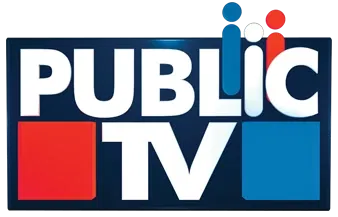NEW DELHI: Co-production of jet engines for the Indian Air Force, defence industrial collaboration, space sector cooperation, semiconductor supply chain and innovation partnership and collaboration in emerging Artificial Intelligence technology are among key takeaways from Prime Minister Narendra Modi’s visit to the US and his bilateral meeting with President Joe Biden.
In a major announcement coinciding with PM Modi’s visit, GE Aerospace yesterday announced that it has signed a Memorandum of Understanding (MoU) with Hindustan Aeronautics Limited (HAL) to produce fighter jet engines for the Indian Air Force.
These state-of-the-art jet engines, known for their endurance and durability, will enhance the capacity of the Indian Air Force. GE Aerospace said more than 1,600 F414 engines have been delivered globally.
“Expressing their desire to accelerate defence industrial cooperation, the leaders welcomed the adoption of a Defence Industrial Cooperation Roadmap, which will provide policy direction to defence industries and enable co-production of advanced defence systems and collaborative research, testing, and prototyping of projects,” the India-US joint statement said, adding both the countries are committed to addressing any regulatory barriers to defence industrial cooperation.
According to the joint statement, both leaders hailed the signing of the MoU for the manufacture of GE F414 jet engines in India for HAL’s Light Combat Aircraft Mk 2.
“This trailblazing initiative to manufacture F-414 engines in India will enable greater transfer of US jet engine technology than ever before. The leaders committed their governments to working collaboratively and expeditiously to support the advancement of this unprecedented co-production and technology transfer proposal.”
The India-US bilateral trade exceeded USD 191 billion in 2022, nearly doubling from 2014.
Noting that the India-US defence partnership has emerged as a pillar of global peace and security, the joint statement said both countries have made substantial progress in building an advanced and comprehensive defence partnership in which “our militaries coordinate closely across all domains”.
They also reiterated their resolve to strengthen maritime security cooperation, including through enhanced underwater domain awareness and welcomed the launch of dialogues in new defence domains including space and AI.
PM Modi’s visit saw the expansion and deepening of the technology partnership, a key area of cooperation between the two countries.
“Prime Minister Modi and President Biden committed their administrations to promoting policies and adapting regulations that facilitate greater technology sharing, co-development, and co-production opportunities between US and Indian industry, government, and academic institutions,” the statement said.
The leaders welcomed the launch of the interagency-led Strategic Trade Dialogue in June 2023 and directed both sides to undertake regular efforts to address export controls, explore ways of enhancing high-technology commerce, and facilitate technology transfer between the two countries.
In the space sector, the two leaders welcomed the decision of NASA and ISRO to develop a strategic framework for human spaceflight cooperation by the end of 2023.
The leaders hailed the announcement by NASA to provide advanced training to Indian astronauts at the Johnson Space Center in Houston, Texas, with a goal of mounting a joint effort to the International Space Station in 2024.
They celebrated the delivery of the NASA-ISRO Synthetic Aperture Radar (NISAR) satellite to ISRO’s U.R. Rao Satellite Centre in Bengaluru, India, and looked forward to NISAR’s 2024 launch from India.
Welcoming India’s Space Policy – 2023, the leaders called for enhanced commercial collaboration between the U.S. and Indian private sectors in the entire value chain of the space economy and to address export controls and facilitate technology transfer.
President Biden deeply appreciated India’s signing of the Artemis Accords, which advance a common vision of space exploration for the benefit of all humankind.
India intends to leverage the space sector’s potential by inviting private players. In this regard, India has allowed the participation of private firms in the space domain.
PM Modi and President Biden hailed the signing of an MoU on Semiconductor Supply Chain and Innovation Partnership as a significant step in the coordination o the two countries’ semiconductor incentive programmes.
This will promote commercial opportunities, research, talent, and skill development, the statement said.
The leaders welcomed an announcement by Micron Technology to invest up to USD 825 million to build a new semiconductor assembly and test facility in India with support from the Indian government.
The combined investment valued at $2.75 billion would create up to 5,000 new direct and 15,000 community job opportunities in the next five years.
The leaders also welcomed Lam Research’s proposal to train 60,000 Indian engineers through its Semiverse Solution virtual fabrication platform to accelerate India’s semiconductor education and workforce development goals, and an announcement by Applied Materials, Inc., to invest $400 million to establish a collaborative engineering center in India.
Micron announced plans to build a new assembly and test facility in Gujarat with the facility expected to meet demand from both domestic and international markets.
India kicked off a semiconductor mission in December 2021 to make the country one of the key players in such technology.
Micron said it selected Gujarat due to its manufacturing infrastructure, conducive business environment and a firm talent pipeline in the SANAND Industrial Park (Gujarat Industrial Development Corporation – GIDC).
Phased construction of the new assembly and test facility in Gujarat is expected to begin in 2023, Micron said while announcing the investment plans. Phase I with 500,000 square feet space will start to become operational in late 2024.
Micron said it will ramp capacity gradually over time in line with global demand trends. Micron expects Phase 2 of the project, which would include the construction of a facility similar in scale to Phase 1, to start towards the second half of the decade.
In addition to its own investments, Micron will receive 50 per cent fiscal support for the total project cost from the Indian central government and incentives representing 20 per cent of the total project cost from the state of Gujarat.
The statement said PM Modi and President Biden acknowledged AI’s opportunities and risks.
“Accordingly, they committed to develop joint and international collaboration on trustworthy and responsible AI, including generative AI, to advance AI education and workforce initiatives, promote commercial opportunities, and mitigate against discrimination and bias.”
“The United States also supports India’s leadership as Chair of the Global Partnership on AI. The leaders applauded Google’s intent to continue investing through its $10 billion India Digitization Fund, including in early-stage Indian startups. Through its AI Research Center in India, Google is building models to support over 100 Indian languages.”
Many nations the world over have been using AI technologies for better service delivery and to reduce human intervention but fears of job cuts are a concern.
The two leaders also underscored the importance of decarbonizing the transportation sector, including by accelerating the deployment of zero-emissions vehicles, continued collaboration to promote public and private financing for electric transportation, and the development of biofuels, including sustainable aviation fuels.
To this end, the leaders lauded the creation and development of the Global Biofuels Alliance, which will be launched in July 2023, with the US as a founding member.
Both leaders welcomed the signing of an MoU under which the US Agency for International Development will support Indian Railways’ ambitious target to become a “net-zero” carbon emitter by 2030.
“The United States and India also announced plans to create a payment security mechanism that will facilitate the deployment of 10,000 made-in-India electric buses in India, augmenting India’s focused efforts in reducing greenhouse gas emissions, improving public health, and diversifying the global supply chain.”
The joint statement said the two leaders also looked forward to reconvening the India-US Trade Policy Forum before the end of 2023 to further enhance the bilateral trade relationship by “addressing trade concerns and identifying further areas for engagement”.
Ambitions of both countries are to reach ever greater heights, and we commit both our governments and our peoples to this endeavour, now and into the future, the joint statement noted.
Prime Minister Modi and President Biden affirmed the intention of the two governments, as trusted partners, to work together to ensure that their respective markets are well-supplied with the essential critical minerals needed to achieve climate, economic and strategic technology cooperation goals.
“The leaders pledged to hasten bilateral collaboration to secure resilient critical minerals supply chains through enhanced technical assistance and greater commercial cooperation, and exploration of additional joint frameworks as necessary,” the statement said.
It said the United States enthusiastically welcomes India as the newest partner in the Mineral Security Partnership (MSP), to accelerate the development of diverse and sustainable critical energy minerals supply chains globally while agreeing to the principles of the MSP including environmental, social, and governance standards.
The leaders lauded the announcement of India’s Epsilon Carbon Limited’s plans to invest USD 650 million in a US greenfield electric vehicle battery component factory.
The two leaders underscored the important role nuclear energy plays in global decarbonization efforts and affirmed nuclear energy as a necessary resource to meet their climate, energy transition, and energy security needs.
The leaders noted ongoing negotiations between the Nuclear Power Corporation of India Limited (NPCIL) and Westinghouse Electric Company (WEC) for the construction of six nuclear reactors in India.
They welcomed intensified consultations between the US DOE and India’s DAE for facilitating opportunities for WEC to develop a techno-commercial offer for the Kovvada nuclear project.
They also noted the ongoing discussion on developing next-generation small modular reactor technologies in a collaborative mode for the domestic market as well as for export.
“The United States reaffirms its support for India’s membership in the Nuclear Suppliers Group and commits to continue engagement with like-minded partners to advance this goal,” the statement said.
PM Modi is in the US on a State visit at the invitation of President Joe Biden and first lady Jill Biden. He celebrated the International Day of Yoga at the United Nations Headquarters with the UN leadership and members of the international community.
Biden and First Lady Jill Biden hosted a State Dinner in honour of the Prime Minister on June 22. The Prime Minister held a bilateral meeting with the US President and also addressed a Joint Sitting of the US Congress. (ANI)










